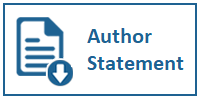Long Term Prediction of Extreme Weather with Long Short Term Memory (LSTM) Model: Effect of Climate Change
DOI:
https://doi.org/10.31937/sk.v17i1.4022Abstract
Increasingly intense climate change has increased the frequency and intensity of extreme weather, making weather prediction critical for mitigation and adaptation. This research focuses on long-term prediction of extreme weather using the Long ShortTerm Memory (LSTM) model, as well as evaluating the influence of climate change on prediction accuracy. In this study, historical weather data is used to train and test an LSTM model combined with a RandomForestClassifier. Analysis was carried out using the Mean Squared Error (MSE) evaluation technique for 50 epochs and 8 trials at various threshold values (26, 29, 32, 35, 38, 41, 44, 47). The research results show that the LSTM model is able to predict extreme weather with an accuracy of up to 100%. Apart from that, this research also predicts daily rainfall in Bandung City through the process of data collection, preprocessing, normalization and evaluation using Root Mean Squared Error (RMSE) and Mean Absolute Error (MAE). This model produces an RMSE of 4.24 and MAE value of 2.72%, indicating quite good predictions. It is hoped that this research can make a significant contribution to the field of meteorology and can be developed further by adding parameters or other methods to improve the quality of predictions. Suggestions are given to increase the amount of data used to obtain better prediction results in the future.
Downloads
Downloads
Published
How to Cite
Issue
Section
License
Copyright (c) 2025 nurulita purnama putri

This work is licensed under a Creative Commons Attribution-ShareAlike 4.0 International License.
Authors retain copyright and grant the journal right of first publication with the work simultaneously licensed under a Creative Commons Attribution-ShareAlike International License (CC-BY-SA 4.0) that allows others to share the work with an acknowledgment of the work's authorship and initial publication in this journal.
Authors are able to enter into separate, additional contractual arrangements for the non-exclusive distribution of the journal's published version of the work (e.g., post it to an institutional repository or publish it in a book), with an acknowledgment of its initial publication in this journal.
Copyright without Restrictions
The journal allows the author(s) to hold the copyright without restrictions and will retain publishing rights without restrictions.
The submitted papers are assumed to contain no proprietary material unprotected by patent or patent application; responsibility for technical content and for protection of proprietary material rests solely with the author(s) and their organizations and is not the responsibility of the ULTIMA Computing or its Editorial Staff. The main (first/corresponding) author is responsible for ensuring that the article has been seen and approved by all the other authors. It is the responsibility of the author to obtain all necessary copyright release permissions for the use of any copyrighted materials in the manuscript prior to the submission.















